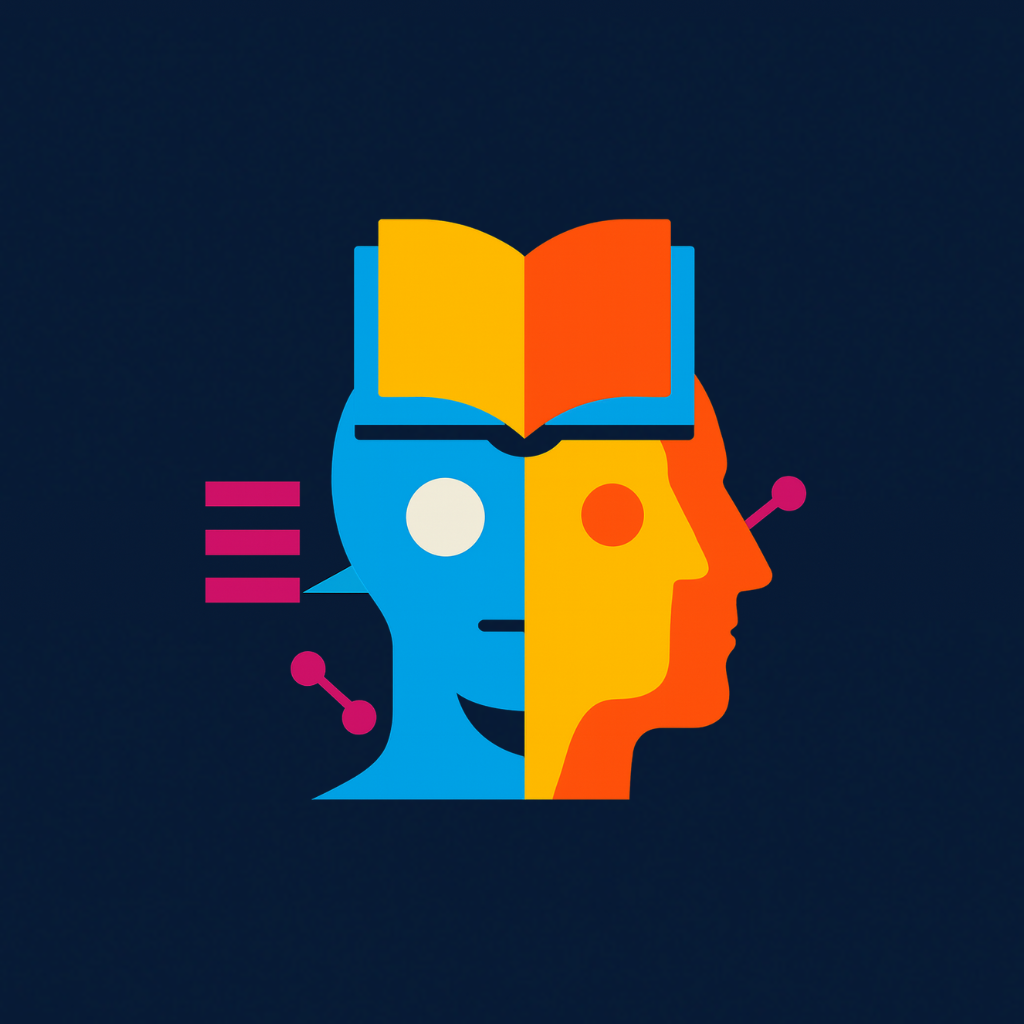Your Data Is Hostage And Your AI Has Amnesia.
Your Spotify knows your soul, Gmail holds your secrets, and your browser history maps every late-night rabbit hole. But your AI? It starts every conversation like you just met. Meanwhile, Big Tech hoards your data in separate vaults, each company protecting their piece of you like digital dragons.This is why your AI feels like a brilliant amnesiac — powerful but clueless about who you actually are. We built Kinic to break both problems at once: a tamper-proof bridge that gives AI access to your scattered digital life while keeping you in control. Think Plaid, but for the AI revolution.Your data. Your AI. Your rules. Finally.

Let's Talk Date Night
Picture this: You're planning a date night and want something special. You spend hours browsing — your city's hidden gems list, that food blog your friend recommended, read reviews for the new cocktail bar, Instagram posts about rooftop spots, a social media thread about romantic restaurants within some budget. Thirty tabs later, your brain is fried and you've forgotten half of what you read.
Now you ask a LLM chat bot for help. But here's the problem: that LLM doesn't know about any of your research. It can't see the speakeasy you bookmarked, the dietary restrictions mentioned in that blog post, or the fact that three different sources warned about hour-long waits at the trendy place. So it gives you the same generic suggestions everyone gets — suggestions that completely ignore the thirty sites worth of context you just gathered.
You end up copy-pasting fragments into the chat, trying to recreate your research. "There's this place called..." and "I read somewhere that..." and "Can you compare these three options I found..." It's exhausting. You're doing the AI's job of connecting information while the AI just responds to fragments.
This is exactly backwards. You should be able to browse those sites, absorb everything into your personal memory store, then ask: "Based on the context, what's the best date spot for tonight?" Your AI should already know about the speakeasy with craft cocktails, the rooftop with city views, and which places have the noise levels and pricing that match what you want.
But here's where it gets really interesting: What if your AI could also understand your partner's preferences? Maybe they've been browsing vegetarian restaurants lately, or they mentioned being excited about that new Jazz club in their group chat. With traditional AI tools, this is impossible — each user exists in their own silo, with zero overlap between contexts.
A traditional SaaS solution would just create another centralized silo, asking both of you to upload your data to yet another company's servers. But the breakthrough is user-owned, cryptographically-protected data stores that can be selectively shared. Your research about date spots, their dietary preferences, both of your schedules — all accessible to AI while remaining under your individual control.
That's not some distant future — that's what Kinic is building right now. Browse, absorb, query. Share context cryptographically. Your research becomes AI memory instantly, and you control exactly what gets shared and with whom.
It's not modern AI's fault that it has no context — it's working with digital amnesia, forced to start fresh every single conversation while your actual research and context sit trapped in browser tabs and bookmarks.
This is the core problem that Kinic solves. Just as Plaid revolutionized fintech by creating secure bridges between banks and applications, Kinic is building the infrastructure layer that connects AI to your distributed digital life. It’s not just another AI tool — it’s the plumbing that makes truly personalized AI possible.
The difference is profound. Instead of generic responses, you get AI that understands your thinking patterns. Instead of starting from scratch, you get continuity across conversations, projects, and platforms. Instead of surrendering your data to corporate vaults, you maintain ownership while unlocking the AI future everyone's been promising.
This isn't just about better autocomplete or smarter recommendations. When AI can access the full context you provide — your communication style from emails, your aesthetic preferences from bookmarks, your work patterns from calendar data — it stops being a calculator and becomes a cognitive amplifier.
The infrastructure exists. The technology works. And for the first time, you can own the keys to your own AI memory.
The Tech That Makes This Possible
Here's the thing about revolutionary infrastructure: it looks impossible until someone builds it. Then suddenly it seems obvious. We've spent the last year assembling the technical stack that makes user-controlled AI memory actually work—not as a theoretical white paper, but as code you can download today.
Your Personal Vector Database, Everywhere
At the foundation is our WASM-based vector database that runs entirely on the ICP blockchain. Think about that for a second: no central servers to trust, no third-party databases to hope don't get breached. Your memory lives wherever you go, secured by WebAuthn biometrics — your fingerprint unlocks your AI's understanding of you.
The magic happens when you visit any website or check email. Our Chrome extension absorbs the content, vectorizes it locally in your browser, and stores it in your personal datastore. Own a bookmark from 2019 that sparked your current startup idea? Your AI remembers. That email thread where you figured out your management philosophy? Indexed and searchable.
The portable vector format means this context follows you across every AI model. GPT, Claude, Gemini — they all get smarter about you specifically, but none of them hold your data hostage.
Zero-Knowledge Machine Learning
But here's where it gets wild. We use advanced cryptographic technology to allow interaction between data stores with no trust. A16z research released a special tech called JOLT. It is a virtual machine that lets us do verifiable computation on any program with extreme speed. It uses a special technique called lookups - that just happen to be great for the non-linear functions that arise in AI.
We modified the JOLT prover to enable it for zero-knowledge machine learning that scales. We then compose it with memory-efficient folding scheme pioneered at Microsoft Research and other great institutions. The lookups and sumcheck protocol — that are perfect for ML workloads — are now a special prover in our Nova-based prover network. This is significant tech on many fronts - but requires a deep dive post.
What this means in practice: Your AI can prove programs with your data without revealing what that data was. Imagine AI agents that can verify they understand your preferences cryptographically, enabling trustless collaboration between different AI systems while keeping your actual information private. For person-to-person dating context this is a must have. For business-to-business a must have.
Privacy-First Architecture
Our WASM zkVM uses folding schemes with proof composition, built on the latest privacy-preserving research. Unlike other zkVMs that bolt on privacy as an afterthought, we designed for it from the ground up. Multi-folding support means we can aggregate proofs efficiently.
The full stack works like this: Your browser-based vector DB captures context → Memory-efficient ZKP proves understanding → Fast zkML enables AI reasoning → On-chain verification ensures tamper-proof operation → You control everything via cryptographic keys.
It's Plaid-level infrastructure, but for the AI revolution. And unlike the current crop of AI memory solutions that require you to trust centralized providers, this actually works the way the internet was supposed to: distributed, user-controlled, and cryptographically verifiable.
We shipped the Chrome extension try it out! The early adopters are already building things and using it for things we didn't expect!
Here Be Dragons! This Requires Blockchain
Here's the uncomfortable truth that traditional tech folk need to hear: you cannot build "Plaid for AI memory" with the same centralized architecture that made Plaid successful. The fundamental economics don't work.
The Trust Problem Is Existential When Plaid connects your bank to Mint, the worst-case scenario is financial fraud — serious, but contained. When an AI memory platform connects your browser history, emails, location data, and private conversations across every app you use, a breach doesn't just compromise your money — it compromises your entire digital identity. Users will never trust a centralized company with this level of intimate data access, no matter how many security audits you wave around.
The Competitive Moat Problem Traditional SaaS companies build moats through data network effects — the more users, the better the service becomes for everyone. But AI memory is inherently personal. Your browsing patterns don't make my AI assistant better; they make yours better. A centralized AI memory company has no defensible moat because the value doesn't compound across users — it compounds within users over time.
The Platform Risk Problem Any centralized AI memory solution becomes an existential threat to every major platform. Google, Apple, Meta — they all make money from controlling user data and context. They will never integrate with a solution that commoditizes their core competitive advantage. A centralized "Plaid for AI" gets cut off from data sources or simply copied and killed by Big Tech.
The Regulatory Impossibility GDPR, CCPA, and the coming wave of AI regulation all demand user ownership and portability of personal data. A centralized company collecting intimate behavioral data across platforms is a compliance nightmare waiting to happen. Smart contracts that give users cryptographic control over their own data? That's not just technically superior — it's the only architecture that survives the regulatory reality.
Why Smart Contracts Actually Matter Here User-controlled smart contracts solve all of these problems simultaneously. Users trust the system because they hold the keys. There's no central server to hack or subpoena. Platforms can't kill what they don't control. And the technical architecture aligns with where regulation is headed, not where it's been.
This isn't crypto ideology. It's market reality.
The Memory Revolution Starts Now
This isn't about building another AI tool. It's about building the foundation layer that makes every AI tool actually intelligent about you. The companies that understand this shift — that AI memory must be user-controlled to be truly valuable — will capture the infrastructure layer of the next computing platform.
Your data was never meant to be hostage. Your AI was never meant to have amnesia. We stand at a unique technological crossroads where several shifts converge: AI models are advancing yet suffer from digital amnesia, personal data is proliferating but remains siloed, and privacy regulations demand user ownership despite lacking the necessary infrastructure.
Kinic is not merely addressing current challenges; we are constructing the foundational infrastructure for the impending AI-native world. In a future where every application boasts an AI assistant, every interaction generates context, and every decision is augmented by machine intelligence, control over the memory layer will be paramount.
The early indicators are already evident. Our recent dev API and Chrome extension launch have shown surprising adoption patterns. Users are not just saving bookmarks; they are developing research workflows, creating shared knowledge bases, and conducting due diligence that previously took weeks, now in mere hours. Use cases are emerging faster than anticipated, demonstrating a pre-existing need for this infrastructure. The competitive advantage is already forming, with each piece of absorbed data, every stored context vector, and every generated cryptographic proof enhancing the network's value for the individual user. This is beyond a traditional network effect; it's a stronger dynamic. A personal AI, refined by months of your behavior, cannot be replicated by a competitor starting from scratch tomorrow. The window of opportunity is narrow. While Big Tech recognizes this impending shift, their existing platforms will architecturally constrain them. They will also end up connecting to Kinic decentralized memory stores.
Your data wasn't meant to be captive. Your AI shouldn't suffer from amnesia. And your date night planning shouldn't be scrambled.
Download Kinic. Own your memory.







